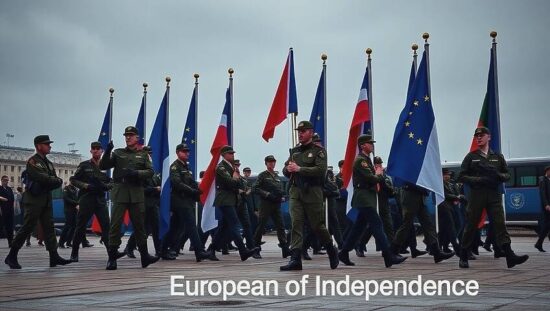Less than three weeks before Donald Trump’s inauguration as US President, Michael Roth, the chairman of the Foreign Affairs Committee, demands a more independent European defense.
Trump’s entry into the White House on January 20 means “significant risks for Europe, both in security and trade policy” said Roth to the “Tagesspiegel” (Thursday edition). “Trump has repeatedly questioned the US security guarantee for NATO and is striving for a deal with Vladimir Putin that, in the worst case, could ignore the security interests of Ukraine and Europe.”
Regardless of who will govern in the White House in the future, Europe must take more responsibility for its own security, the SPD politician demanded. “This means that our defense spending must increase significantly – two percent of the gross domestic product should be the minimum” said Roth: “By the end of the decade, we should reach defense investment levels comparable to those of the Cold War era.” In the 1960s, the Federal Republic of Germany, on average, allocated more than four percent of its economic power to defense, and in the 1970s, around three percent. This year, it is 2.1 percent.
The threat from Russia is today at least as serious as it was from the Soviet Union, said Roth. The goal must be “a Europe that is able to defend itself conventionally independently.” A dependence on the US should be limited to nuclear deterrence only.
In trade policy, Trump views the EU as an opponent and accuses it of exploiting the US for decades, said the SPD politician: “A trade conflict with retaliatory tariffs seems unavoidable.” Trump’s second term will be a “serious test of endurance for Europe.” However, in every crisis, there is an opportunity, said Roth: “It could bring Europe closer together and provide the impetus for new integration steps and a stronger, more united Europe.”
Roth called for a joint China strategy by Germany with the US. “Europe is facing the danger of a second China shock” he said. Germany’s industrial location is increasingly under pressure due to China’s overproduction in the electric mobility and green technologies sector. Additionally, China’s support for Russia’s war of aggression against Ukraine, which directly affects our security interests, so Roth: “Therefore, it is in our central interest to develop a joint and resolute strategy for dealing with China with the US government – regardless of its political leadership.





